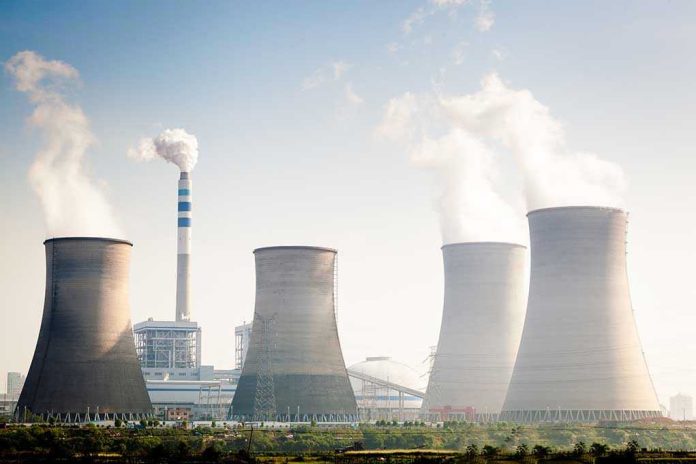
Energy expert Trisha Curtis warns that America’s strategic competition with China hinges entirely on unleashing domestic energy production, as the Trump administration inherits years of deliberate policy sabotage designed to cripple U.S. oil and gas dominance.
Key Points
- Curtis connects U.S. shale production directly to strategic advantage over China’s state-directed energy ambitions
- Previous administration policies deliberately constrained American energy independence through regulatory barriers
- China leverages Belt and Road Initiative energy investments while U.S. production faces artificial limitations
- American technological innovation in unconventional resources provides competitive edge that centrally planned systems cannot replicate
Energy Independence as Strategic Weapon
Trisha Curtis, President and CEO of PetroNerds and energy economist specializing in U.S.-China competition, demonstrates how American energy production capacity directly determines geopolitical power balance. Curtis founded PetroNerds in 2015 after establishing expertise through work with the Department of Defense on China and international economics. Her Master’s dissertation at London School of Economics examined Chinese National Oil Companies, providing foundational knowledge of Beijing’s state-directed energy strategy that now threatens American interests globally.
Curtis employs a granular analytical approach, evaluating individual operators, assets, reservoirs, and plays to assess whether aggregate U.S. production supports broader strategic objectives. Her November 2015 Oxford Institute study proved American shale producers maintain competitiveness even during market downturns—crucial resilience against state-backed competitors like China. This production flexibility represents a decisive competitive advantage over centrally planned economies that cannot adapt quickly to market conditions or technological breakthroughs.
Policy Sabotage Undermines National Security
Curtis warns that previous administration policies systematically constrained American energy advantages through regulatory barriers and infrastructure blockades. She assessed that Washington demonstrated “nothing that has happened from an energy standpoint that would lead me to believe that they are looking to help out the oil industry in any form.” Curtis specifically cited the Keystone XL pipeline cancellation as representing permanent rather than temporary policy changes designed to cripple energy export capacity.
The energy expert emphasized that “the oil industry probably doesn’t have a really deep grasp of how serious the legislative stuff is gonna be and how intense, really, that Washington and Whitehouse are on their views of the oil and gas industry.” This deliberate hostility toward domestic production handed strategic advantages to China while Beijing aggressively pursued energy acquisition strategies through Belt and Road Initiative investments across critical regions worldwide.
Technology Innovation Provides Decisive Edge
Curtis documented how American technological advances in unconventional resource development create advantages that state-directed systems struggle to replicate. Her November 2017 report on completion design changes and November 2016 analysis of productivity gains prove U.S. innovation consistently outpaces competitors. These technological breakthroughs in shale extraction and production efficiency provide economic resilience against market manipulation attempts by hostile state actors seeking to undermine American energy security.
Curtis emphasizes that effective strategic competition requires sophisticated understanding of energy market fundamentals, stating there is “immense value in just having a deeper understanding of how the market works.” Her Department of Energy work evaluating North American crude production through 2030 provides policymakers with scenarios for maintaining American energy advantages essential to defeating China’s ambitions for global energy control and economic dominance.
Sources:
Oxford Institute for Energy Studies – Trisha Curtis
PetroNerds – About Trisha Curtis
The Crude Life – Celebrating Women in Energy: Trisha Curtis
Fort Worth Chamber – Energy Council Hosts Trisha Curtis














